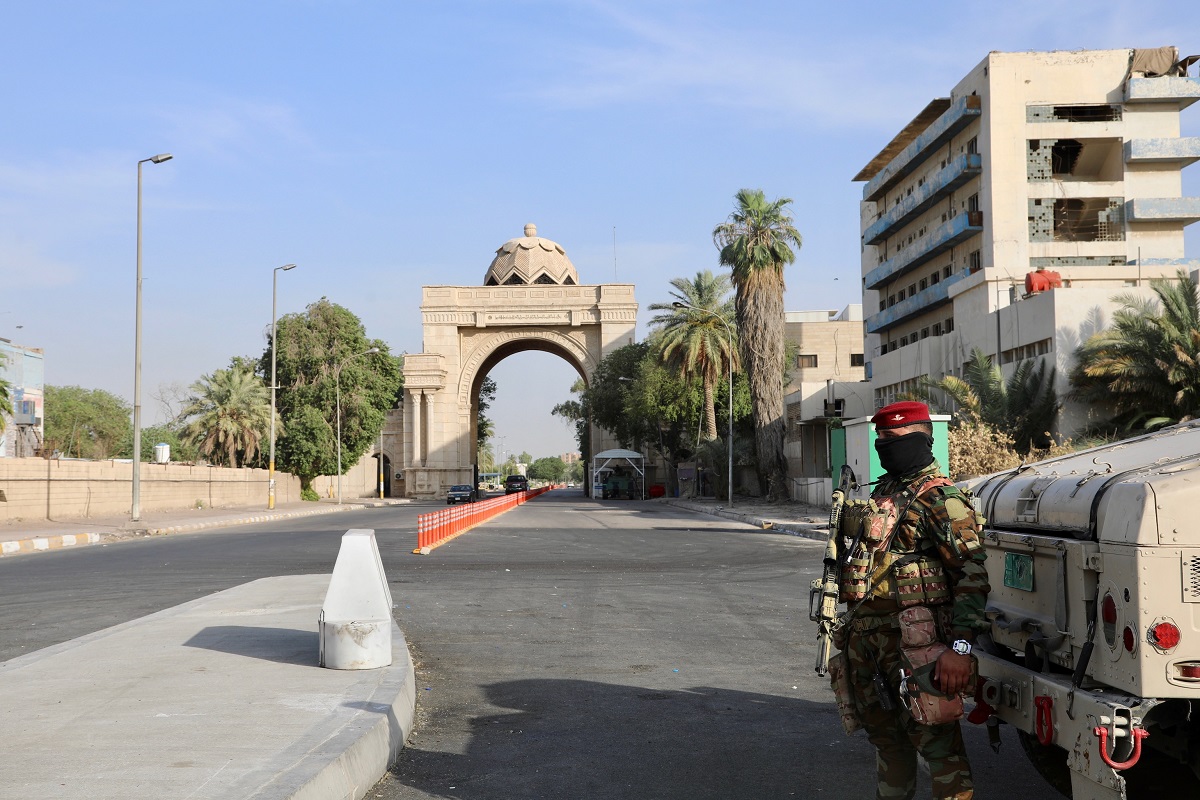Terrorists responsible for Baghdad bombing arrested: PM
Last week, 30 people were killed and more than 50 wounded in the bomb explosion at a crowded market in Sadr city
Three years later, the bombers blew themselves up among a crowd of shoppers. Baghdad remains ever so volatile, indeed a capital where tension rages beneath the tenor of normal life, with violence and killings a further inch beneath.

A security member guards an entrance to the Green Zone, Baghdad, Iraq (Photo: IANS)
Embattled Baghdad has been roiled again with the death of no fewer than 32 people and injuries suffered by as many as 100 in Thursday’s twin suicide bombings in a busy commercial area of the Iraqi capital.
The region is home to a second- hand clothes market, and a segment of the economy has been blighted Though no group has as yet claimed responsibility, the general suspicion is on the Islamic State of Iraq and Syria. The last deadly suicide attack in the city occurred in January 2018, when 35 people were killed in Tayaran Square.
Three years later, the bombers blew themselves up among a crowd of shoppers. Baghdad remains ever so volatile, indeed a capital where tension rages beneath the tenor of normal life, with violence and killings a further inch beneath. Indeed, the frightfully volatile ambience of the place hasn’t really changed since the days that followed the repressive era of Saddam Hussein.
Advertisement
Towards the end of 2017, the Iraqi government had declared victory in its war against ISIS, the forbidding entity that has extended its tentacles to different parts of the world.
However, sleeper cells continue to wage a low-level insurgency in the country, operating mainly in rural areas and targeting security forces. There appears to be some confusion within the government itself. Iraqi military spokesman Yehia Rasool said Thursday morning’s attack was “carried out by two suicide bombers who detonated themselves when pursued by security forces” through the Bab Sharqi area. But other accounts suggested that the assailants moved freely through Tayaran Square, which was busy following the easing of coronavirus-related restrictions.
The inherent irony is cruel. The lifting of pandemic related curbs would suggest a forward movement towards the normal, such as it is. Alas, it has turned out to be an occasion for strife and killings. An interior ministry statement said the first bomber rushed into the market, claiming to feel sick. When people gathered around him he detonated an explosive belt he was wearing. There was, therefore, a fair measure of planning and calibration before the spirited footsoldiers of ISIS stormed the market, as generally believed in the beleaguered country.
The attacks have occurred days after Iraq’s government said an early general election would be postponed from June until October in order to give electoral authorities more time to register voters and new parties. The Iraqi President, Barham Saleh, said the targeting of innocent people in Baghdad “at this specific time confirms the attempt by the groups of darkness to target all national entitlements and our people’s aspirations for a safe future”.
Last year, Donald Trump had ordered the withdrawal of half the American troops deployed in Iraq, saying he had confidence in the ability of local forces to prevent a resurgence of ISIS. The US presence was cut from 5,200 to 3,000 in September, and was due to fall to 2,500 this month. Just as the “local forces” have failed in Afghanistan, so too have they been ineffectual in Iraq.
Advertisement